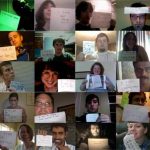 The mental health challenges of the gig economy are well known, but Amazon’s Mechanical Turk seems altogether different to most gig economy platforms. If anything, the tasks people are asked to perform are even more menial than those on more traditional platforms.
The mental health challenges of the gig economy are well known, but Amazon’s Mechanical Turk seems altogether different to most gig economy platforms. If anything, the tasks people are asked to perform are even more menial than those on more traditional platforms.
New research attempts to explore whether this has an impact on the mental health of Turkers. The study suggests that depression among Turkers could be nearly 4 times as high as in the general population.
“Knowledge about the reasons behind increased prevalence rates [of depression] is not only interesting on its own but also necessary for accurate interpretations of research results,” the researchers say. “To the extent that this finding reflects a genuine difference, increased prevalence makes MTurk an even more convenient and attractive recruitment platform for clinical researchers.”
Turker blues
The researchers conducted a couple of experiments, the first of which required a few thousand MTurk users to report their levels of depression over the previous fortnight. These might include things such as hopelessness, difficulty concentrating or changes to one’s sleeping and eating patterns.
They attempted to weed out fake accounts by using suspicious IP addresses as a proxy, together with those with IP addresses from outside the United States. They also filtered out workers who failed basic attentiveness tests on the platform, with the eventual pool whittled down to 1,848 individuals.
In total, some 13% of these workers reported symptoms that marked them out as having severe depression, which renders Turkers considerably more prone to depression than the general population.
They followed this up with a second experiment, featuring 2,444 US-based Turkers. Once again, they filtered out those using suspicious IP addresses and who had failed attentiveness tests, leaving 1,461 people remaining. Of these 11% met the criteria for major depression. This compares to around 3-4% among the general population.
While not necessarily causative, the research also found that Turkers tend to be younger than average, and significantly less physically active. They also report poorer sleep quality than the average person. The pool were also more educated than average, and reported higher income levels.
“Approximately half of this difference can be attributed to differences in the composition of MTurk samples and the general population (i.e., sociodemographics, health, and physical activity lifestyle),” the researchers say.
The other half may be a wide range of factors, from those already suffering from depression perhaps being more inclined to take online surveys to the very act of participating on MTurk contributing to their depressive thoughts. After all, the work is largely solitary and menial, neither of which are likely to help one’s mental health.
A final hypothesis the researchers propose is that the online environment simply renders us more inclined to tell the truth, and that it’s the official figures that are lower than reality. It’s obviously an area of work that requires further investigation, but the initial findings are interesting nonetheless.